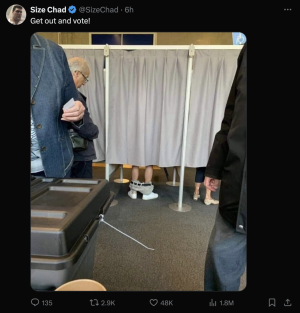Democrats and some legal experts have sharply disputed Barr's argument, suggesting that Trump’s actions to undermine the probe could have prevented the discovery of evidence of a conspiracy or that he may have been attempting to conceal the discovery of other related crimes -- such as allegations that he directed the payment of hush money to two women who accused him of extramarital affairs, evidence of which emerged from Mueller's investigation. Several of Trump's closest allies, including Stone, were also charged with crimes in Mueller's investigation.
But Barr argued that without proof of a conspiracy -- the foundation of Mueller's probe -- Trump's conduct must be viewed through a different lens, especially because as president, he had the inherent authority to fire Mueller and even, in Barr's view, shutter any investigation he deems unfair and detrimental to his ability to govern.
Stone had pointed to these arguments to undercut Mueller's prosecution against him, but prosecutors in the case said the arguments were both irrelevant -- because they related only to the president -- and misinterpreted.
"The indictment alleges, and the evidence admitted at trial will show, that after the 2016 U.S. presidential election, the [House and Senate Intelligence Committees], and the Federal Bureau of Investigation all opened or announced investigations into Russian interference in the 2016 U.S. presidential election," prosecutors wrote. "The defendant acted corruptly to obstruct those investigations. And the defendant’s actions were capable of influencing the investigations. That is all the law requires."
The argument by the U.S. attorney and Mueller's team essentially contradicts a recent claim made by Trump's personal lawyer, Rudy Giuliani, on Thursday. "An obstruction case where there is no proof of an underlying crime is questionable. If you add to it nothing actually obstructed, there’s no case," Giuliani tweeted.
The series of briefs posted Friday evening were filed by U.S. Attorney for Washington D.C. Jessie Liu, along with two attorneys who have worked with Mueller's team, Adam Jed and Aaron Zelinsky. They responded to Stone's multiple efforts to have his indictment dismissed, to demand access to Mueller's full report, to claim he was being selectively prosecuted and to argue that Mueller's appointment and funding sources were improper.
In support of his argument to dismiss the case against him, Stone pointed to a 19-page memo Barr wrote and forwarded to Justice Department leaders when he was outside of government. Barr argued at the time for a sharply narrowed definition of obstruction crimes when related to the president. But Mueller's team said Stone misrepresented Barr's memo.
"The memorandum does not argue that every obstruction statute should be interpreted to require proof of the crime that gave rise to the investigation that was obstructed," they wrote.
Prosecutors also argued against Stone's effort to transfer his case from his current judge, Amy Berman Jackson, who presided over the guilty plea and sentencing of former Trump campaign chairman Paul Manafort. Berman Jackson is also overseeing the pending case against a dozen Russian hackers charged by Mueller -- and Stone's case was referred to her because prosecutors considered it related.
Stone has argued that his case is not related, particularly since Mueller's team never charged any Americans with conspiring as part of the hacking operation. But prosecutors said this argument, too, was flawed because the hacking case arose from "common search warrants" such as those that helped indict Stone.
Therefore, they wrote, Stone's charge "are a part of the same alleged criminal event or transaction, which is the applicable legal standard."
Stone separately argued that Mueller's investigation was invalid and should be dismissed because it was part of a broader probe that targeted Trump. His attorneys argued that it's inherently wrong to divide the Executive Branch against itself by requiring the Justice Department to investigate, essentially, its boss.
Prosecutors similarly argued that Stone was mistaken because "the investigation was not specific to the president" and the indictment itself related to Stone's conduct, not Trump's. However, prosecutors went further to emphasize that there is authority to investigate the president, citing the investigation of Richard Nixon.
"Merely investigating a president, his campaign, or others who worked with them raises no such difficulties -- particularly where the investigator remains accountable to the attorney general," they wrote.
"If Article II prevented any investigation of a President or his campaign while he was in office, the government could not preserve evidence while memories are fresh and documentary materials are available. Nor, it would seem, could the government conduct an investigation that may clear the President of alleged wrongdoing," the prosecutors added.
Stone was charged in January with obstructing the House Intelligence Committee' investigation of Russian interference in the 2016 election, launched in early 2017, just after Trump took office. He was also charged with making five false statements to the committee and one count of witness tampering.
The charges related to his testimony about efforts to contact WikiLeaks founder Julian Assange. Stone foreshadowed in the summer of 2016 that Wikileaks appeared to have a cache of information that would harm then Democratic nominee Hillary Clinton and appeared to have some insight on the timing of its release. He has since denied having any advanced knowledge. Assange was recently indicted on an unrelated cybercrime charge and is fighting extradition to the United States in London.
Stone has pleaded not guilty to the charges against him. The flamboyant political operative has been under a gag order in recent months.











































